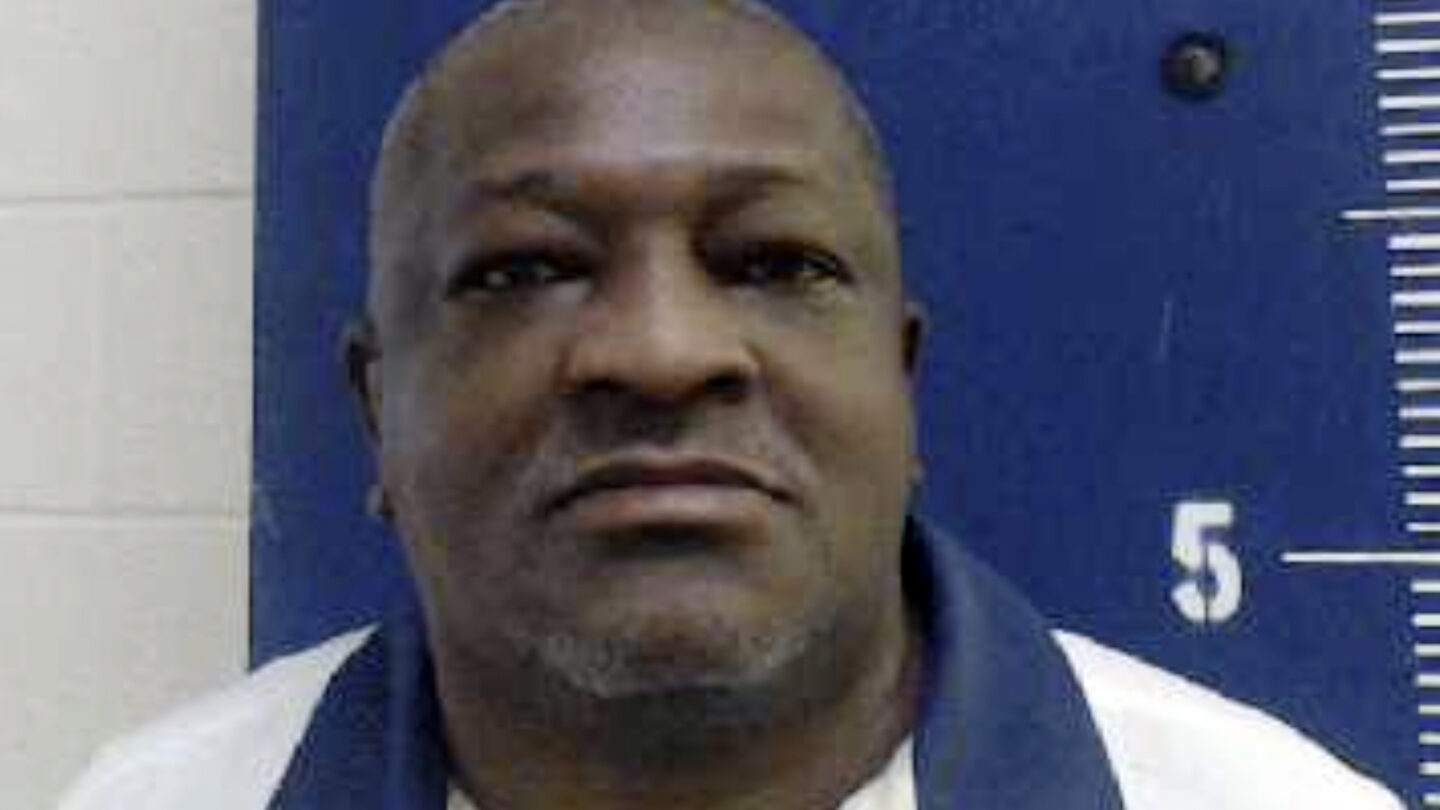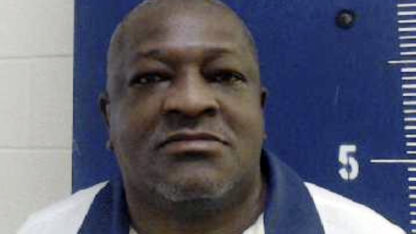Man convicted of ex-girlfriend's killing scheduled to be first Georgia inmate executed in years

A Georgia man convicted of killing his former girlfriend three decades ago was scheduled to be put to death Wednesday evening in what would be the state’s first execution in more than four years.
Willie James Pye, 59, was convicted of murder and other crimes in the November 1993 shooting death of Alicia Lynn Yarbrough. The planned lethal injection using the sedative pentobarbital was set at the state prison in Jackson. Pye was scheduled to be the first person executed in Georgia since January 2020, barring an 11th-hour court intervention.
Pye’s lawyers filed late appeals to the U.S. Supreme Court, urging it to intervene. The attorneys argued the state hadn’t met the necessary conditions for resuming executions after the COVID-19 pandemic and reiterated arguments that Pye was intellectually disabled and thus ineligible for execution. State responses to the justices Wednesday night argued that the defense claims were without merit, having been settled previously by the courts.
The court had no immediate response.
Earlier, six family members visited with Pye as well as a clergy member and an attorney, Department of Corrections spokeswoman Lori Benoit said. Across the street from the prison in Jackson, a man shouted protests against the death penalty through a megaphone and held up a sign reading, “DON’T KILL Willie Pye” before passing motorists.
Bidding for clemency earlier in the week, Pye’s lawyers called his 1996 trial “a shocking relic of the past” and said the local public defender system had severe shortcomings at the time. They also argued their client’s intellectual disability meant he should not be put to death. The Georgia Parole Board rejected Tuesday’s defense arguments, denying the clemency request.
Pye had been in an on-and-off romantic relationship with Yarbrough, but at the time she was killed, she was living with another man. Pye, Chester Adams and a 15-year-old had planned to rob that man and bought a handgun before heading to a party in a nearby town, prosecutors had said previously.
The trio left the party around midnight and went to Yarbrough’s house, finding her alone with her baby. They forced their way into the house, stole a ring and necklace from Yarbrough, and forced her to come with them, leaving the baby alone, according to the prosecutors.
The group drove to a motel, where they raped Yarbrough and then left the motel with her in the car, prosecutors said. They turned onto a dirt road and Pye ordered Yarbrough out of the car, made her lie face down and shot her three times, according to court filings.
Yarbrough’s body was found on Nov. 17, 1993, a few hours after she was killed. Pye, Adams and the teenager were quickly arrested. Pye and Adams denied knowing anything about Yarbrough’s death, but the teenager confessed and implicated the other two.
The teenager reached a plea agreement with prosecutors and was the main witness at Pye’s trial. A jury in June 1996 found Pye guilty of murder, kidnapping, armed robbery, rape and burglary, and sentenced him to death.
Pye’s lawyers had argued in court filings that prosecutors relied heavily on the teenager’s testimony but that he later gave inconsistent statements. Such statements, as well as Pye’s testimony during trial, indicate that Yarbrough left the home willingly and went to the motel to trade sex for drugs, the lawyers said in court filings.
Lawyers representing Pye also wrote in court filings that their client was raised in extreme poverty in a home without indoor plumbing or enough food, shoes or clothing. His childhood was characterized by neglect and abuse by family members who were often drunk, his lawyers wrote.
His lawyers also argued that Pye suffered from frontal lobe brain damage, potentially caused by fetal alcohol syndrome, which harmed his planning ability and impulse control.
Pye’s lawyers had long argued in courts that he should be resentenced because his trial lawyer didn’t adequately prepare for the sentencing phase of his trial. His legal team argued that the original trial attorney failed to sufficiently investigate his “life, background, physical and psychiatric health” to present mitigating evidence to the jury during sentencing.
A federal judge rejected those claims, but a three-judge panel of the 11th U.S. Circuit Court of Appeals agreed with Pye’s lawyers in April 2021. Then the case was reheard by the full federal appeals court, which overturned the panel ruling in October 2022.
Pye’s co-defendant Adams, now 55, pleaded guilty in April 1997 to charges of malice murder, kidnapping with bodily injury, armed robbery, rape and aggravated sodomy. He got five consecutive life prison sentences and remains behind bars.








